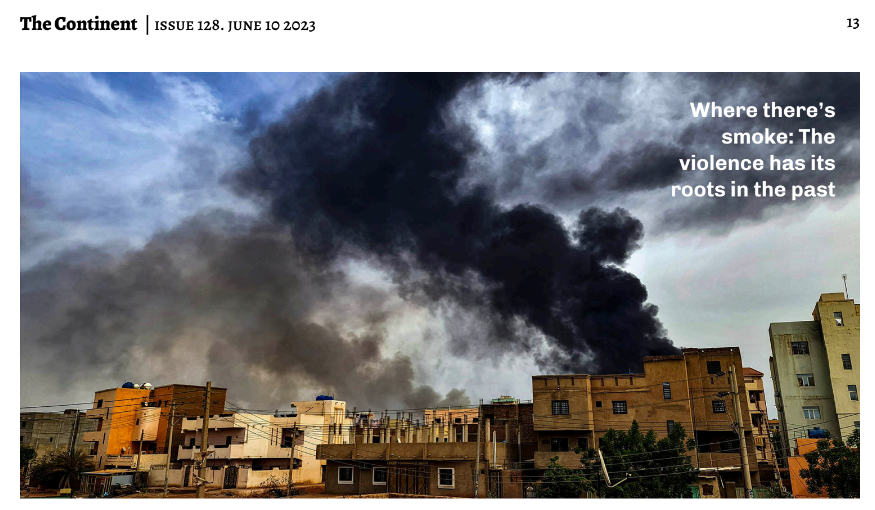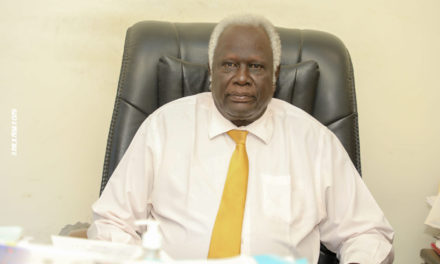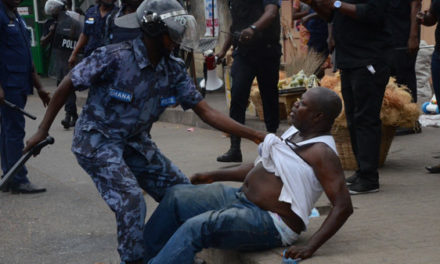
Sudan Conflict: Bashir Centre for Sudanese Studies Library burnt to ashes.

The war raging over Sudan’s present – and its past. In the grounds of the Omdurman Ahlia University, in the Sudanese city of Omdurman, there is a library filled with rare books, handwritten manuscripts, and historical documents. That library no longer exists.
By El Zahraa Jadallah and Tom Rhodes
Last month, as armed groups fought on the streets of Omdurman and its sister city Khartoum, the library of the Mohamed Omer Bashir Centre for Sudanese Studies was consumed by fire.
The collection was destroyed and with it one of the most significant repositories of Sudanese history and culture. The fire was no accident, although no one knows for sure who set it. The surrounding area is controlled by the Rapid Support Forces (RSF), the paramilitary group which is fighting the Sudanese Armed Forces for control of the state.
“We notified them, but they did not care to respond,” said Al-Mutassim Ahmed Al-Hajj, the head of the centre, which is housed in the prestigious Omdurman Ahlia University.
It was, he said, “a systematic act designed to harm the private university, which is highly symbolic as a beacon for private education in the country”.
The loss is incalculable and irrecoverable.
“The library represented a vital conservation institution for Sudanese heritage,” said Osman Shinger, an author and former head of the Sudanese Writers Union.
It had taken decades to build up the collection, which included a wide array of original volumes and documents on Sudan’s politics, history, and culture, all of which are now in ashes.
The things we lost The fighting began on 15 April this year, and is now in its eighth week, despite a
number of attempted ceasefires.
Bloody street battles have been fought in Khartoum and Omdurman, with residents caught in the crossfire; fighter jets have dropped bombs on the capital; and soldiers have robbed and occupied homes.
The rest of the country has not been spared, with the most serious clashes happening in Darfur in the west, where cities such as Geneina have become battlefields amid reports of widespread
civilian casualties.
The war is destroying Sudan’s present. The latest confirmed death toll is 865, although this is likely to be much higher, with more than a million people displaced.
The war is destroying Sudan’s future – even if the fighting stops today, it will take years, and billions of dollars, to repair the damage and recover all that has been lost. And the war is destroying Sudan’s past.
“Museums are now without guard … to protect them from looting and vandalism,” said Sara Abdalla Khidir Saeed, director of the Sudan Natural History Museum in Khartoum, in an open letter.
She believes that all of the animals that were in her care are now dead. “I asked everyone who can pass through the university to break the locks of the cages and allow the birds and monkeys to come out – but nothing happened. We lost animals that are rare to find now in their natural habitat.”
The National Museum, also in Khartoum, was occupied last week by the RSF. Fighters were filmed inside the museum’s Bolheim Bioarcheology Laboratory, where ancient human remains are stored and analysed, including some mummies that are several thousand years old.
The priceless exhibits had been thrown open. One fighter erroneously describes the ancient skeletons as recent victims of former president Omar al-Bashir, and pledges to seek justice for their deaths.
“To start with, I did not believe what I was seeing,” said National Museum director Ghalia Gharelnabi, in an interview with the Guardian.
“Now I am worried about where else they might have gone in the museum that no one filmed, and what else they are going to do.” Identity crisis Sudan’s leaders have long sought to erase anything that does not suit their own narrative.
According to Shinger, threats to wipe out Sudan’s rich historical, cultural, and artistic heritage date to the 1940s.
Under the rule of Bashir’s National Congress Party – which ended when the dictator was toppled in a revolution in 2019 – cultural events at Khartoum University were routinely censored; the theatre, music, and sculpture departments at the Fine Arts College were shut down; and attempts were made to destroy an invaluable archive of Sudanese music.
Shinger says that the party was trying to erase 7,000 years of Sudanese culture, “as they try to rewrite history to start when Islam entered the country or pretend that it begins with their coup in 1989”.
He referenced the Taliban in Afghanistan, who destroyed monuments, such as the Buddhas of Bamiyan, that were inconsistent with their beliefs – or might inspire resistance. The irony is that all this history is far from being forgotten. It has fueled the current conflict, which is rooted in power dynamics and historic injustices that were so rigorously documented by the library at the Centre for Sudanese Studies – before those documents were destroyed.
Many of the books in the library were a donation from the family of researcher and writer Reem Abbas. “My family decided to donate all of the books belonging to my great grandfather, Al-Tijani Amer [a writer, politician, and civil servant] to the university,” said Abbas.
“When I heard about the destruction, I felt it was a loss on so many levels … The motivation is just a way of completely erasing this country’s history and heritage, disempowering its population from the things they valued and the things that connected them to their history and this city in particular.”
This story was first published by The Continent.




















Recent Comments